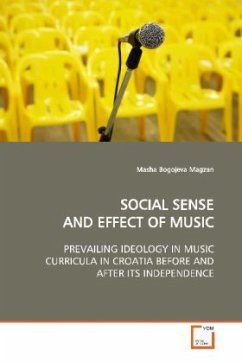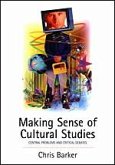Focusing on the presence of prevailing ideology in
the music curricula and music promoted by the media
in the periods prior to and after Croatian
independence, the book analyzes socio-political
aspects in music. The key issue is reflection of the
changing ideological priorities and socio-economic
context on the musical values of the socialist and
democratic Croatia. A view of ideology in connection
with music is presented on two levels: one is the
change in the content and orientation of the music
curriculum after Croatian independence, and the
other is formation of Croatian music identity as an
ideological category. The shift of ideology is
traced from the period when the role of music was to
help support communist ideology and multinational
unification of the former Yugoslavia, to the recent
revival of national rhetoric and the process of re-
traditionalization and de-secularization in
independent Croatia. Repercussions of such
ideological shift are clearly manifested in the
changes of the educational concepts and the content
of the music curriculum, as well as in the types of
music promoted and broadcasted by media.
the music curricula and music promoted by the media
in the periods prior to and after Croatian
independence, the book analyzes socio-political
aspects in music. The key issue is reflection of the
changing ideological priorities and socio-economic
context on the musical values of the socialist and
democratic Croatia. A view of ideology in connection
with music is presented on two levels: one is the
change in the content and orientation of the music
curriculum after Croatian independence, and the
other is formation of Croatian music identity as an
ideological category. The shift of ideology is
traced from the period when the role of music was to
help support communist ideology and multinational
unification of the former Yugoslavia, to the recent
revival of national rhetoric and the process of re-
traditionalization and de-secularization in
independent Croatia. Repercussions of such
ideological shift are clearly manifested in the
changes of the educational concepts and the content
of the music curriculum, as well as in the types of
music promoted and broadcasted by media.







